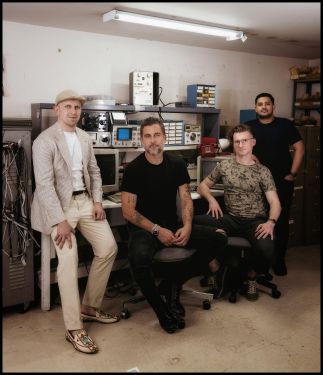AI Startup Moonvalley Secures $43M in New Funding to Revolutionize Video Creation

Los Angeles’ own Moonvalley, a pioneering startup focused on AI-powered video generation, has successfully secured an impressive $43 million in a new funding round, as reported in a recent SEC filing. This funding milestone comes shortly after the company unveiled its innovative Marey model, a cutting-edge AI generator designed to transform how video content is created.
The SEC filing highlights contributions from 11 undisclosed investors and signals a strong interest in AI tools that facilitate easier video production. Notably, this latest funding follows Moonvalley’s prior achievement of $70 million in seed investment from notable venture capitalists such as General Catalyst, Khosla Ventures, and Bessemer Venture Partners.
A spokesperson for Moonvalley clarified that the latest filing does not reflect the final funding figure, with the official total expected to be confirmed shortly. As the number of companies in the video generation space continues to rise, including key players like Runway and Luma, the competition intensifies, making distinctiveness in offerings essential.
The Marey model stands out for its collaborative development with Asteria, a new AI animation studio. It boasts customization features that allow users to manipulate camera angles and motion, generating high-definition content up to 30 seconds in length. Moonvalley asserts that its approach is legally more compliant compared to many competitors, some of whom face challenges over copyright issues due to reliance on public data.
While several generative video companies argue their practices fall under the fair use doctrine, this has not prevented legal actions from rights holders. In contrast, Moonvalley focuses on building licensing agreements and compiles datasets of licensed video materials, similar to the strategy employed by Adobe through its Adobe Stock platform.
However, the shift toward automated video generation raises concerns among creators and industry professionals. According to a recent study by the Animation Guild, AI technologies could displace over 100,000 jobs in the film, television, and animation sectors by 2026. Recognizing this, Moonvalley plans to implement measures that allow creators to opt-out of having their content used in its models and ensures data deletion for customers upon request.
In a move to mitigate potential legal risks, the company will also introduce an indemnity policy to protect users against copyright disputes, further enhancing its commitment to ethical practices in the AI space.
Unlike some unrestricted video models that may include personal likenesses without consent, Moonvalley’s tools will incorporate stringent guardrails to maintain responsible use. Similar to OpenAI’s initiatives, the Marey model will block the generation of content involving specific individuals, ensuring respect for privacy and copyright. The burgeoning field of AI-generated video content continues to evolve, with ethical considerations playing a pivotal role in its future.
For more information on these developments in AI technology, check resources from reputable sources like TechCrunch and the Animation Guild.
